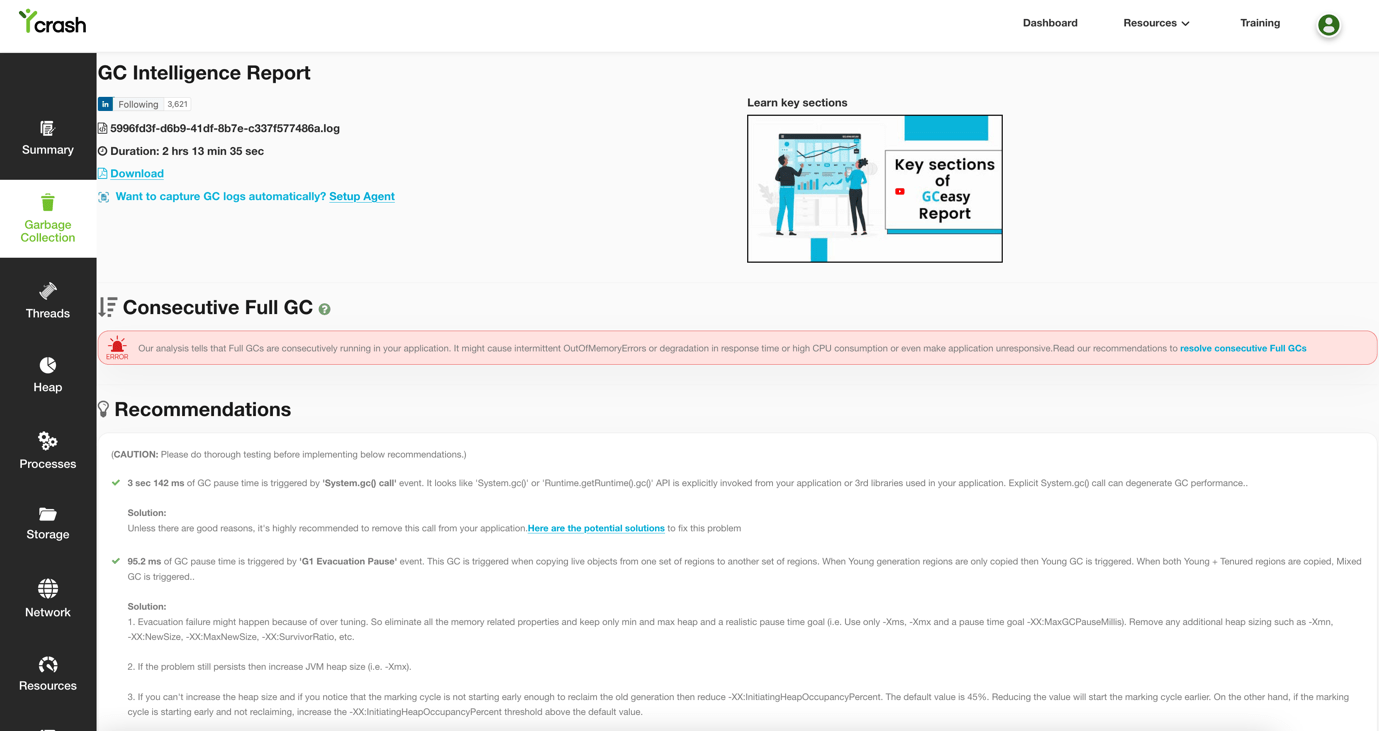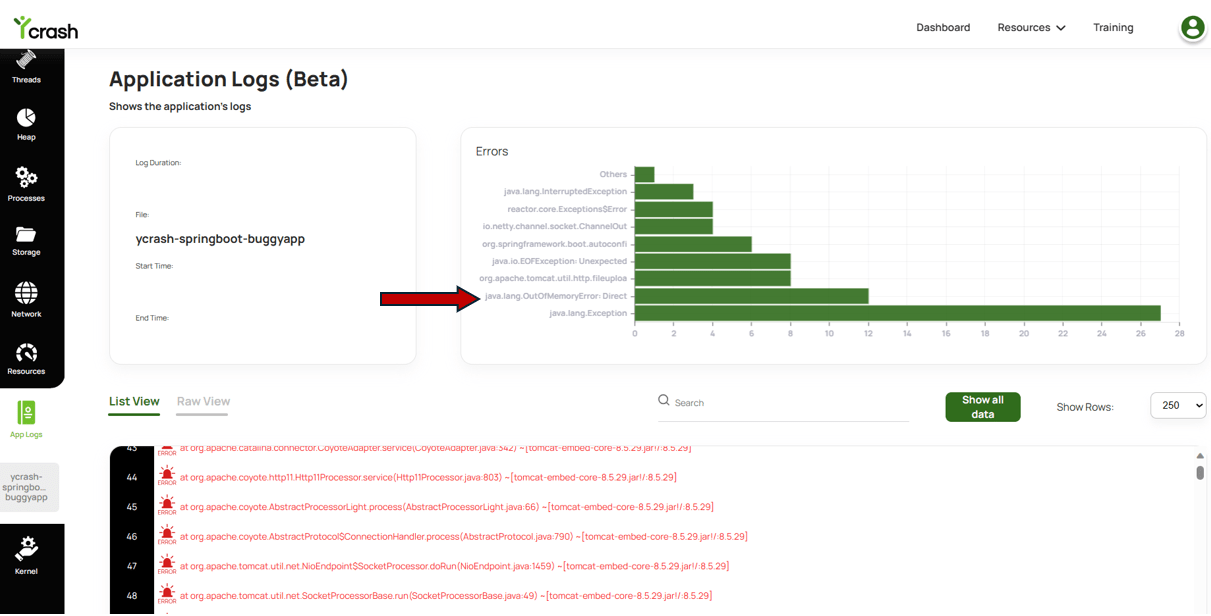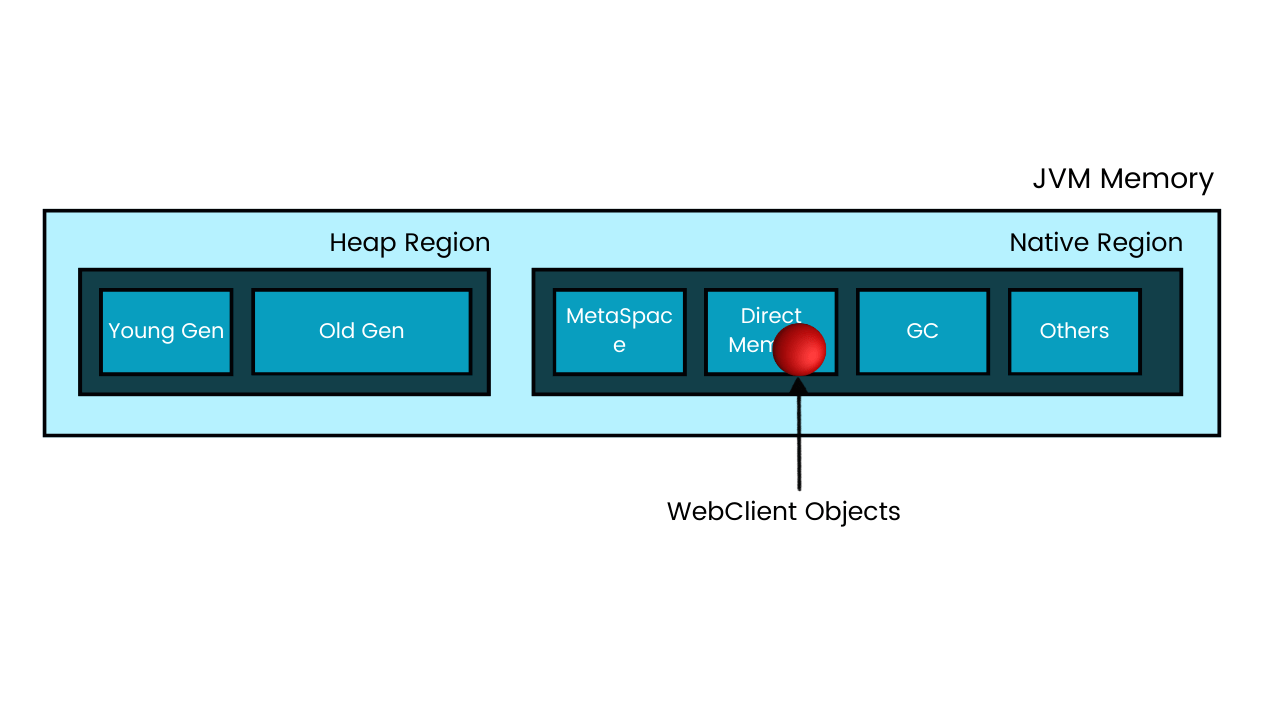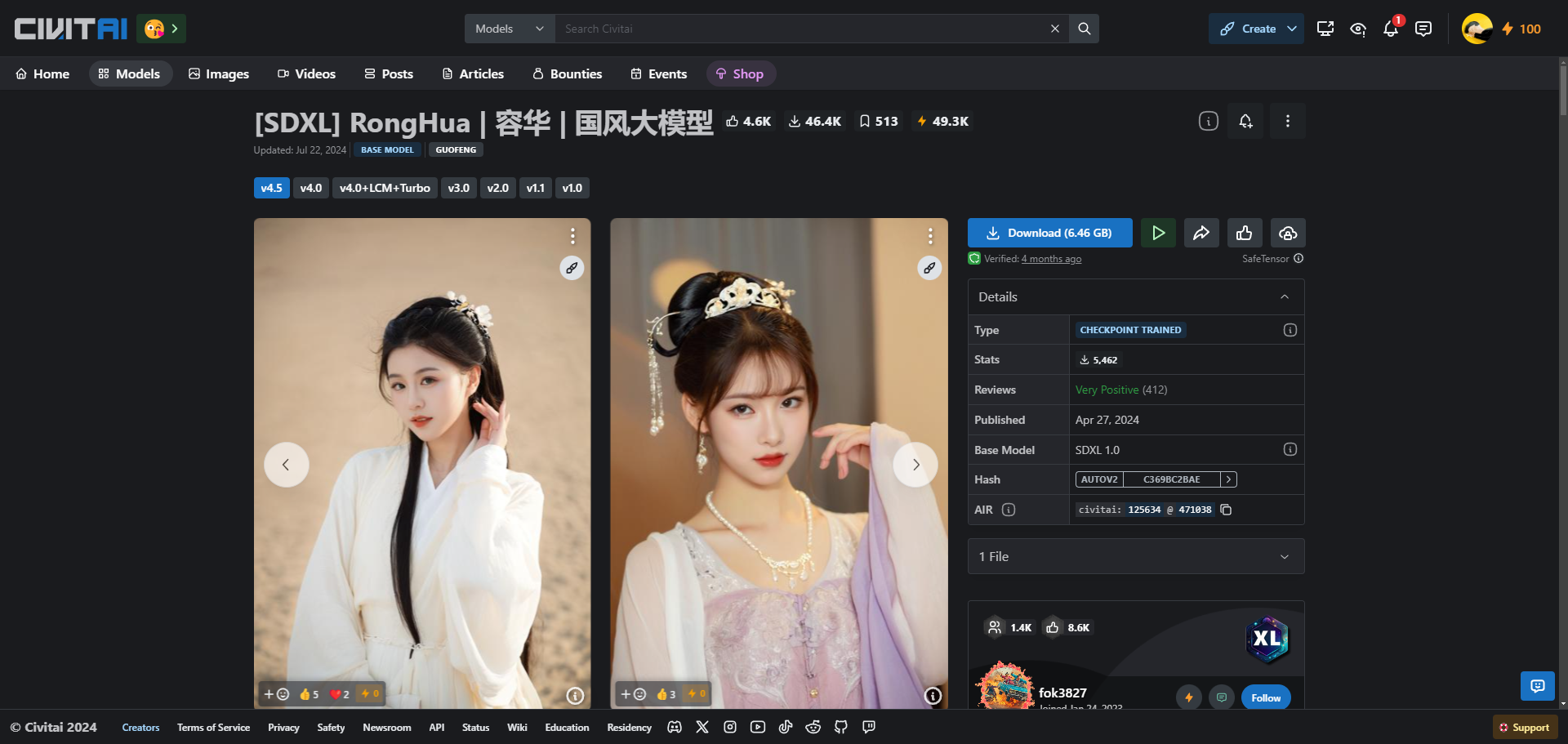Spring Boot是 Java 企业应用程序的一个非常流行的框架。与内部或外部应用程序集成的一种常见方法是通过 HTTP REST 连接。我们正在从RestTemplate升级到基于 Java NIO 的WebClient,它可以通过允许在调用 REST 服务端点时进行并发来显著提高应用程序性能。WebClients 的好处如下:
- 并发性: WebClient 能够同时处理多个连接而不会阻塞线程,从而实现更好的并发性。
- 异步 :异步编程允许应用程序在等待I/O操作完成时执行其他任务,从而提高整体效率。
- 性能: 非阻塞 I/O 可以用更少的线程管理更多的连接,从而减少处理并发请求所需的资源。
虽然性能有所改善,但在并发连接数相同的情况下,WebClient 会因 OutOfMemoryError 而崩溃。我们将分析 WebClient 崩溃问题以及如何排除故障和修复这些问题。
Spring RestTemplate 到 WebClient 升级
为了利用 NIO 的优势(例如并发和异步处理),我们将 REST 客户端调用从 Spring RestTemplate 升级为 WebClient,如下所示。
Spring Rest模板
public void restClientCall(Integer id, String url,String imagePath) {
// Create RestTemplate instance
RestTemplate restTemplate = new RestTemplate();
// Prepare the image file
File imageFile = new File(imagePath);
// Prepare headers
HttpHeaders headers = new HttpHeaders();
headers.setContentType(MediaType.MULTIPART_FORM_DATA);
// Prepare the request body
MultiValueMap<String, Object> body = new LinkedMultiValueMap<>();
body.add("file", new org.springframework.core.io.FileSystemResource(imageFile));
// Create the HTTP entity with headers and the multipart body
HttpEntity<MultiValueMap<String, Object>> requestEntity = new HttpEntity<>(body, headers);
System.out.println("Starting to post an image for Id"+id);
// Perform the POST request
ResponseEntity<String> responseEntity = restTemplate.postForEntity(url, requestEntity, String.class);
// Print the response status code and body
System.out.println("Response Id "+id +":"+ responseEntity.getBody());
System.out.println(" Time: " + LocalTime.now());
}
如下所示的 Spring WebClient :
public void webHeavyClientCall(Integer id,String url, String imagePath) {
// Create a WebClient instance
WebClient webClient = WebClient.create();
// Prepare the image file
File imageFile = new File(imagePath);
// Perform the POST request with the image as a part of the request body
MultiValueMap<String, Object> body = new LinkedMultiValueMap<>();
body.add("file", new FileSystemResource(imageFile));
System.out.println("Image upload started "+id);
webClient.post().uri(url).contentType(MediaType.MULTIPART_FORM_DATA).body(BodyInserters.fromMultipartData(body)).retrieve().bodyToMono(String.class).subscribe(response -> {
System.out.println("Response Id"+id+ ":" + response);
});
}
WebClient 导致 OutOfMemoryError
当我们在OpenJDK 11中运行这两个程序时。使用基于 NIO 的 Spring WebClient 的程序在几次迭代后导致 “java.lang.OutOfMemoryError:直接缓冲内存” ,而基于 Spring RestTemplate 的程序成功完成。以下是基于 NIO 的 Spring WebClient 程序的输出。您可以注意到报告了“java.lang.OutOfMemoryError”。
Starting to post an image for Id0
Starting to post an image for Id1
Starting to post an image for Id2
Starting to post an image for Id3
Starting to post an image for Id4
Starting to post an image for Id5
Starting to post an image for Id6
Starting to post an image for Id7
Starting to post an image for Id8
Starting to post an image for Id9
Starting to post an image for Id10
Starting to post an image for Id11
Starting to post an image for Id12
Starting to post an image for Id13
Starting to post an image for Id14
2023-12-06 17:21:46.730 WARN 13804 --- [tor-http-nio-12] io.netty.util.concurrent.DefaultPromise : An exception was thrown by reactor.ipc.netty.FutureMono$FutureSubscription.operationComplete()
reactor.core.Exceptions$ErrorCallbackNotImplemented: io.netty.channel.socket.ChannelOutputShutdownException: Channel output shutdown
Caused by: java.lang.OutOfMemoryError: Direct buffer memory
at java.base/java.nio.Bits.reserveMemory(Bits.java:175) ~[na:na]
at java.base/java.nio.DirectByteBuffer.<init>(DirectByteBuffer.java:118) ~[na:na]
at java.base/java.nio.ByteBuffer.allocateDirect(ByteBuffer.java:318) ~[na:na]
at java.base/sun.nio.ch.Util.getTemporaryDirectBuffer(Util.java:242) ~[na:na]
at java.base/sun.nio.ch.IOUtil.write(IOUtil.java:164) ~[na:na]
at java.base/sun.nio.ch.IOUtil.write(IOUtil.java:130) ~[na:na]
at java.base/sun.nio.ch.SocketChannelImpl.write(SocketChannelImpl.java:496) ~[na:na]
at io.netty.channel.socket.nio.NioSocketChannel.doWrite(NioSocketChannel.java:418) ~[netty-transport-4.1.23.Final.jar!/:4.1.23.Final]
at io.netty.channel.AbstractChannel$AbstractUnsafe.flush0(AbstractChannel.java:934) ~[netty-transport-4.1.23.Final.jar!/:4.1.23.Final]
... 18 common frames omitted
解决“OutOfMemoryError:直接缓冲内存”问题
为了解决这个问题,我们利用了 yCrash 监控工具。此工具能够在生产环境中出现中断之前预测中断。一旦它预测到环境中出现中断,它就会从您的环境中捕获 360° 故障排除工件,对其进行分析并立即生成根本原因分析报告。它捕获的工件包括垃圾收集日志、线程转储、堆替换、netstat、vmstat、iostat、top、top -H、dmesg、内核参数、磁盘使用情况……
您可以在此处注册并开始使用此工具的免费版本。
yCrash 服务器分析了 Spring Boot Rest Client,并提供了问题的明确指示和建议。以下是 yCrash 为 SpringBoot WebClient 应用程序生成的事件摘要报告。您可以注意到 yCrash 清楚地指出了错误,并提供了解决问题的必要建议。
外链图片转存失败,源站可能有防盗链机制,建议将图片保存下来直接上传
图 1:yCrash 的事故总结报告
垃圾收集分析报告
yCrash 的垃圾收集 (GC) 分析报告显示,完整 GC 正在连续运行(见下面的屏幕截图)。当 GC 运行时,整个应用程序都会暂停,不会处理任何事务。整个应用程序将变得无响应。我们在 SpringBoot WebClient 应用程序因 OutOfMemoryError 崩溃之前观察到了无响应行为。

图 2:yCrash 报告指出了连续完整 GC 问题
日志分析报告 OutOfMemoryError:直接缓冲内存
yCrash 的应用程序日志分析报告显示,应用程序受到“ java.lang.OutOfMemoryError:直接缓冲内存” 的影响(见下面的屏幕截图),导致应用程序崩溃。

图 3:yCrash 日志报告指出 java.lang.OutOfMemoryError:直接缓冲内存
为什么Spring WebClient会出现OutOfMemoryError?

图 4:存储在本机内存其他区域中的 RestTemplate 对象

图 5:存储在本机内存的直接内存区域中的 WebClient 对象
Spring WebClient 是基于Java NIO技术开发的。在 Java NIO 中,对象存储在 JVM 本机内存的“直接缓冲内存”区域中,而 RestTemplate 对象存储在 JVM 本机内存的“其他”区域中。JVM 中有不同的内存区域。要了解它们,您可以观看此视频片段。
当我们执行上述两个程序时,我们将直接缓冲区内存大小设置为 200k(即 -XX:MaxDirectMemorySize=200k)。这个大小对于 Spring RestTemplate 来说足够了,因为对象从未存储在这个区域中,但另一方面对于 Spring WebClient 来说却不够。因此 Spring WebClient 遭受了* java.lang.OutOfMemoryError: Direct buffer memory 的困扰。 *
增加 -XX:MaxDirectMemorySize
确定此问题后,我们使用 JVM 参数 -XX:MaxDirectMemorySize=1000k 将直接内存大小增加到更高的值。进行此更改后,Spring WebClient 程序运行正常,没有任何问题。
Starting to post an image for Id0
Starting to post an image for Id1
Starting to post an image for Id2
Starting to post an image for Id3
Starting to post an image for Id4
Starting to post an image for Id5
Starting to post an image for Id6
Starting to post an image for Id7
Starting to post an image for Id8
Starting to post an image for Id9
Starting to post an image for Id10
Starting to post an image for Id11
Starting to post an image for Id12
Starting to post an image for Id13
Starting to post an image for Id14
Starting to post an image for Id15
Starting to post an image for Id16
Starting to post an image for Id17
Starting to post an image for Id18
Starting to post an image for Id19
Response Id11:Image uploaded successfully!
Response Id4:Image uploaded successfully!
Response Id1:Image uploaded successfully!
Response Id18:Image uploaded successfully!
Response Id2:Image uploaded successfully!
Response Id3:Image uploaded successfully!
Response Id6:Image uploaded successfully!
Response Id5:Image uploaded successfully!
Response Id10:Image uploaded successfully!
Response Id13:Image uploaded successfully!
Response Id15:Image uploaded successfully!
Response Id8:Image uploaded successfully!
Response Id17:Image uploaded successfully!
Response Id9:Image uploaded successfully!
Response Id7:Image uploaded successfully!
Response Id0:Image uploaded successfully!
Response Id16:Image uploaded successfully!
Response Id14:Image uploaded successfully!
Response Id19:Image uploaded successfully!
Response Id12:Image uploaded successfully!
结论
在这篇文章中,我们讨论了从 Spring RestTemplate 升级到基于 Java NIO 的 WebClient 时遇到的 OutOfMemoryError 问题。我们还分享了我们采取的诊断方法以及解决问题的方法。希望您觉得它有用。


















